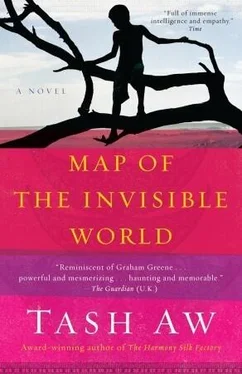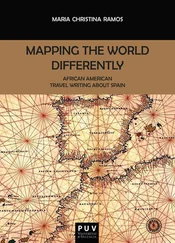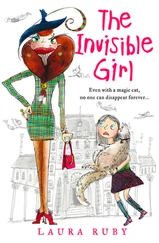Tash Aw - Map of the Invisible World
Здесь есть возможность читать онлайн «Tash Aw - Map of the Invisible World» — ознакомительный отрывок электронной книги совершенно бесплатно, а после прочтения отрывка купить полную версию. В некоторых случаях можно слушать аудио, скачать через торрент в формате fb2 и присутствует краткое содержание. Год выпуска: 2010, Издательство: Spiegel & Grau, Жанр: Современная проза, на английском языке. Описание произведения, (предисловие) а так же отзывы посетителей доступны на портале библиотеки ЛибКат.
- Название:Map of the Invisible World
- Автор:
- Издательство:Spiegel & Grau
- Жанр:
- Год:2010
- ISBN:нет данных
- Рейтинг книги:4 / 5. Голосов: 1
-
Избранное:Добавить в избранное
- Отзывы:
-
Ваша оценка:
- 80
- 1
- 2
- 3
- 4
- 5
Map of the Invisible World: краткое содержание, описание и аннотация
Предлагаем к чтению аннотацию, описание, краткое содержание или предисловие (зависит от того, что написал сам автор книги «Map of the Invisible World»). Если вы не нашли необходимую информацию о книге — напишите в комментариях, мы постараемся отыскать её.
comes an enthralling novel that evokes an exotic yet turbulent place and time—1960s Indonesia during President Sukarno’s drive to purge the country of its colonial past. A page-turning story,
follows the journeys of two brothers and an American woman who are indelibly marked by the past — and swept up in the tides of history.
Map of the Invisible World — читать онлайн ознакомительный отрывок
Ниже представлен текст книги, разбитый по страницам. Система сохранения места последней прочитанной страницы, позволяет с удобством читать онлайн бесплатно книгу «Map of the Invisible World», без необходимости каждый раз заново искать на чём Вы остановились. Поставьте закладку, и сможете в любой момент перейти на страницу, на которой закончили чтение.
Интервал:
Закладка:
Tash Aw
Map of the Invisible World
For my sisters, LL and SL
Did I not once upon a time have a lovable childhood, heroic and fabulous, to be written on leaves of gold, an excess of good fortune?
— ARTHUR RIMBAUD, MatinHis voice lasted just a few moments. A fleeting tremor, never to be repeated.
— PRAMOEDYA ANANTA TOER, “YANG SUDAH HILANG”My dreams are like other people’s waking hours…. My memory, sir, is like a garbage heap.
— JORGE LUIS BORGES, “FUNES, HIS MEMORY”1
W hen it finally happened, there was no violence, hardly any drama. It was over very quickly, and then Adam found himself alone once more. Hiding in the deep shade of the bushes, this is what he saw.
The soldiers jumped from the truck onto the sandy soil. They dusted themselves off, straightening their hitched-up trouser legs and tucking their shirts into their waistbands. Their long sleeves were rolled up thickly above their elbows and made their arms look skinny and frail, and the belts they wore were so wide they seemed to stretch their waists to their chests. They laughed and joked and aimed pretend-kicks at one another. Their boots were too big and when they ran they looked like clowns. They were just kids, Adam thought, just like me, only with guns.
They hesitated as they approached the steps going up to the veranda, talking among themselves. They were too far away; he couldn’t hear what they were saying. Then two of them went up to the house and when they emerged they had Karl with them. He was not handcuffed; he followed them slowly, walking to the truck with his uneven gait before climbing up and disappearing under the tarpaulin canopy. From a distance he looked small, just like them, just like a child too, only with fair hair and pink skin.
Stop. Adam wanted to call out, to scream for Karl to come back. Don’t leave, he wanted to shout. But he remained silent and unmoving, shrouded by the dense, thorny foliage. He could do this now: He held his breath and counted slowly from one to ten. A long time ago, he had learned this way of controlling his fear.
The truck reversed and then drew away sharply, kicking up a cloud of sand and dust; on its side there was a crude chalk drawing of a penis next to the words YOUR MOTHER—. Overhead the skies were rich and low and black, pregnant with moisture. It had been like this for some days; it had not rained in a long time, but now there was a storm coming. Everyone wanted rain.
In truth it did not surprise Adam that the soldiers had come. All month there had been signs hinting at some impending disaster, but only he seemed to see them. For weeks beforehand the seas had been rough, the ground trembling with just the slightest suggestion of an earthquake. One night Adam was awakened from his sleep by such a tremor, and when he went to the door and looked outside the coconut trees were swaying sinuously even though there was no wind; the ground felt uncertain beneath his feet and for a while he could not be sure that it wasn’t he who was swaying rather than the trees. The ginger and white cat that spent its days bounding across the grass roof in search of mice and lizards began to creep slowly along, as if suddenly it had become old and unsteady, until one morning Adam found it dead on the sand, its neck twisted awkwardly at an angle, its face looking up toward the sky.
Then there was the incident in town. An old man had cycled from his village in the hills, looking to buy some rice from the Chinese merchant. He’d just come back from the Hajj, he said; the pilgrimage is an honor but it isn’t cheap. The crops had not been good all year; the dry season had been too long, and now there was no food left. He asked for credit, but the merchant refused point-blank. Last year there was a plague of rats, he said; this year there is a drought. Next year there will be an earthquake and the year after there will be floods. There is always something on this shit hole of an island. No one has any money, everyone in town will tell you the same thing. Prices are high, but it’s no one’s fault: If you don’t have cash, there’s nothing anyone can do for you. So the old man went to the pawnshop with his wife’s ring, a small gemstone that might have been amber, set in a thin band of silver. The Chinese pawnbroker peered at it through an eyeglass for a few seconds before handing it back. A fake, he said, shrugging, a cheap fake. An argument ensued, a scuffle; insults of a personal, and no doubt racial, nature were exchanged. Later that evening, when the hot heavy night had descended, someone — it is not clear who — splashed kerosene on the doors of the pawnshop and took a match to it. The traditional wooden houses of this island (of which not many survive) burn easily, and within half an hour it was engulfed in flames. There were no survivors. The Chinese shops stayed closed for three days; no one could buy anything. Suddenly there were fistfights all over town. Communists were arriving from the mainland to capitalize on the unrest, everyone said. Gangs of youths roamed the streets armed with machetes and daubing graffiti on houses. Commies DIE. Foreigners Chinese go to hel .
It was like an article from the newspapers played out for real, the static images rising from the newsprint and coming to life before Adam’s very eyes. The charred timber remains of burned-out buildings, the bloodred paint on walls. The empty streets. Adam knew that there were troubles elsewhere in Indonesia. He had heard there was a revolution of some sort — not like the ones in France or Russia or China, which he had read about, but something fuzzier and more indistinct, where no one was quite sure what needed to be overthrown, or what to be kept. But those were problems that belonged to Java and Sumatra — at the other end of this country of islands strung out across the sea like seaweed on the shore. That was what everyone thought. Only Adam knew that they were not safe.
Karl had refused to do anything. He did not once consider leaving.
“But …” Adam tried to protest. He read the newspapers and listened to the radio, and he knew that things were happening all across the archipelago.
“Why should we?”
“Because of your … because we are, I mean, you are different .” Even as he spoke he knew what the response would be.
“I am as Indonesian as anyone else on this island. My passport says so. Skin color has nothing to do with it, I’ve always told you that. And if the police come for me, I’ll tell them the same thing. I have committed no crime; I’m just like everyone else.”
And so they had stayed. They had stayed, and the soldiers had come. Adam had been right all along; he knew the soldiers would come for them. He had imagined himself being in jail with Karl in Surabaya or somewhere else on the mainland, maybe even Jakarta, but now he was alone. It was the first time in his life he had been alone — the first time in this life at least.
He waited in the bushes long after the truck had gone. He didn’t know what he was waiting for but he waited anyway, squatting with his backside nearly touching the ground, his knees pulled up to his chin. When it was nearly dark and the sea breeze started up again he walked back to the house and sat on the veranda. He sat and he waited until it was properly night, until he could see nothing but the silhouettes of the trees against the deep blankness of the sea beyond, and he felt calmer.
Night falls quickly in these islands, and once it arrives you can see nothing. If you light a lamp it will illuminate a small space around you quite perfectly, but beyond this pool of watery brilliance there is nothing. The hills, the scrubby forests, rocky shoreline, the beaches of black sand — they become indistinguishable, they cease to exist as independent forms. And so, sitting motionless in the dark, only his shallow breaths reveal that Adam is still there, still waiting.
Читать дальшеИнтервал:
Закладка:
Похожие книги на «Map of the Invisible World»
Представляем Вашему вниманию похожие книги на «Map of the Invisible World» списком для выбора. Мы отобрали схожую по названию и смыслу литературу в надежде предоставить читателям больше вариантов отыскать новые, интересные, ещё непрочитанные произведения.
Обсуждение, отзывы о книге «Map of the Invisible World» и просто собственные мнения читателей. Оставьте ваши комментарии, напишите, что Вы думаете о произведении, его смысле или главных героях. Укажите что конкретно понравилось, а что нет, и почему Вы так считаете.












